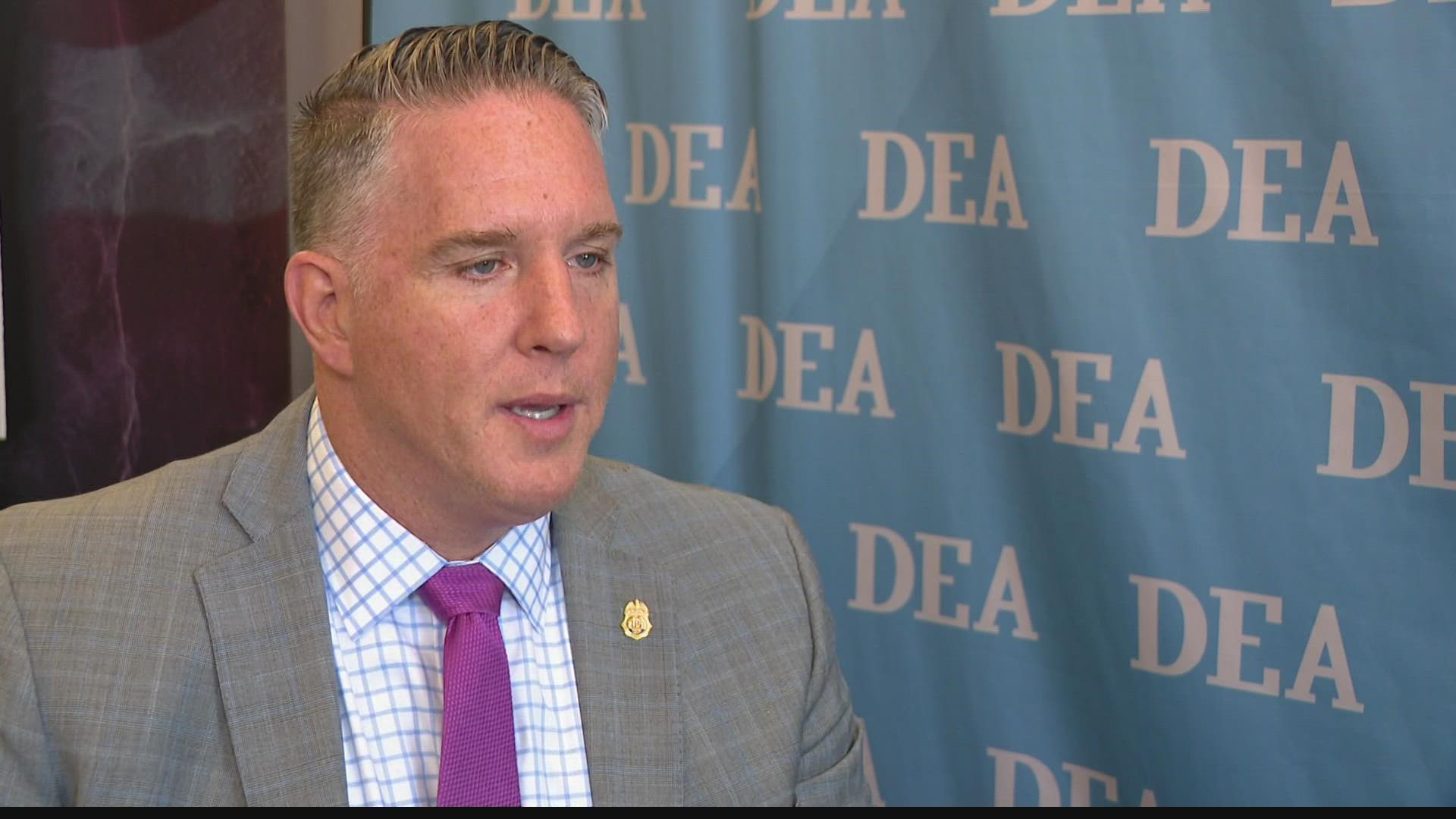INDIANAPOLIS — The DEA is issuing a public safety alert after seizing deadly fake pills at record amounts. Local agents are asking for the public's help amid an alarming spike in fentanyl.
It's in every county, city, and town across the state of Indiana and the country.
"It's affecting everybody," DEA Special Agent Michael Gannon said. "When it comes to drugs, there's no socioeconomic boundary. It can go in any neighborhood."
The DEA has seized more counterfeit pills this year than the last two years combined. The number of those pills containing fentanyl has jumped nearly 430% since 2019, according to the DEA.
On Thursday, the DEA announced that in the last two months, 22 people were arrested and 77,000 counterfeit fentanyl pills were seized throughout Illinois, Indiana and Wisconsin.
"China is sending these chemicals to make fentanyl to Mexico and they're pumping and they're flooding the United States with millions of these counterfeit oxycodone pills," Gannon said.
Those pills, Gannon said, are funneling into Marion County. The coroner's office is seeing the impact. Of the 490 deadly overdoses reported this year, 375 are linked to fentanyl. Another 164 cases are still getting analyzed.
"The numbers are through the roof, staggering," Gannon said.
To put the problem into perspective, around one million people live in and around Indianapolis. "We have clearly seized in this area alone, enough that would have affected over 27 million people," Gannon said.
The DEA is issuing a public safety alert — the first in six years — that "One Pill Can Kill."
"They think crushing a pill, snorting a pill, taking a pill, not a big deal, it is. Every time you do it, you're risking your life," Gannon said.
13News made an exclusive visit to a DEA lab in Chicago in July to see the counterfeit pills firsthand.
"Of seized fentanyl pills, two out of every five have a fatal dosage unit in them," Gannon said.
Agents said they'll continue to do their job
"Do the best we can to get drugs off the street and hold people that are putting that poison, accountable," Gannon said.
But they're asking the public to do theirs.
"Every parent needs to have this conversation with their kids," Gannon said.
The DEA's drug takeback program is also coming up in October.
The public will be able to drop off any medication at any drop-off site, no questions asked.

